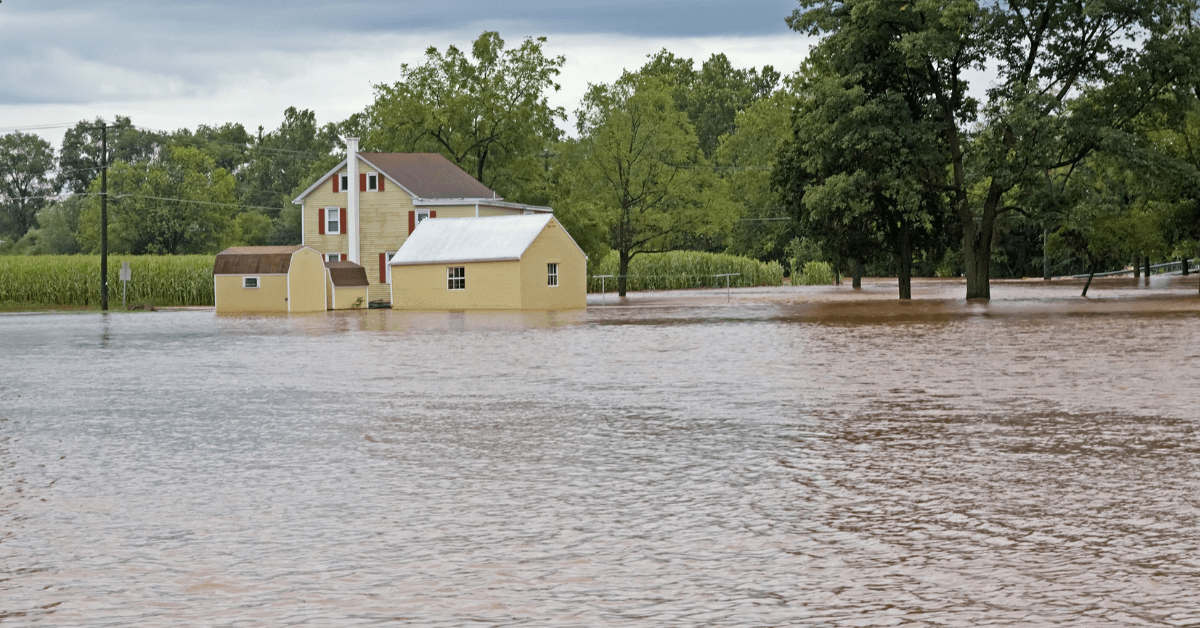
Flood Insurance At Risk
Tens of Thousands of Home Sales Will Fail If Congress Doesn’t Renew Flood Insurance
Forty thousand home sales hang in the balance as Congress debates the renewal of our National Flood Insurance Program (NFIP) this May. Because home and rental insurance doesn’t cover flood damage, flood insurance is often the only way homeowners can receive the funds they need to repair and rebuild. Without it, homeowners are left dependent upon the federal government for rebuilding assistance after major floods.
However, FEMA only steps in if the flooding is declared a disaster by the president – and the payout is nowhere near comparable to what NFIP delivers. According to the Insurance Information Institute, NFIP “provides coverage for up to $250,000 for the structure of the home and up to $100,000 for personal possessions.”
The Advocate, a newspaper serving Baton Rouge, Louisiana, tells readers what kind of payout they could expect from FEMA after a disaster – and it’s not $250,000.
“Although a federal aid program to help disaster victims can provide as much as $33,000 per household, typical grants run a fraction of that amount, averaging $8,000 or less, according to an analysis by The Advocate of payouts in a dozen recent high-profile disasters.
March floods in Louisiana and Texas averaged in the $5,000 range. The average payout for those affected by Hurricanes Rita, Isaac and Gustav was about $3,000, according to data provided by the Federal Emergency Management Agency.”
If the NFIP fails to receive another extension this spring, it isn’t just coastal homeowners that will suffer. “Roughly half of the flood disasters since 1990 occurred in landlocked states” Austin Perez, Senior Policy Representative at the National Association of Realtors® (NAR) explained. “According to years of NAR research, about 40,000 home sales stall each month that Congress fails to reauthorize the NFIP.”
NAR supports long-term reauthorization and reform, and believes that continuing the existing pattern of renewal after renewal only postpones – rather than fixes the program. On March of this year, NAR’s representative, Chicago REALTOR® Mabél Guzmán testified before the House Financial Services Committee, advocating for reform and sustainability.
Guzmán called for improved flood mapping as well as fair premium setting and increased mitigation funding – changes that would allow the program to stay in place for the long term. She also talked about how removing regulatory obstacles would give homeowners access to a more robust, competitive private flood insurance market.
“The embattled National Flood Insurance Program is central to U.S. disaster preparedness efforts,” Guzmán said in her testimony. “According to NAR research, the program is also essential to completing half-a-million home sales per year, each of which contributes two jobs and $80,000 to America’s economy. However, the NFIP was not designed nor intended to address the catastrophic loss years we have seen since 2005, meaning the program is not sustainable as currently structured.”
Time to Focus on Affordable Housing
Taxes on real estate are not the answer. Sign the petition calling on Congress to address our country’s housing shortage.





